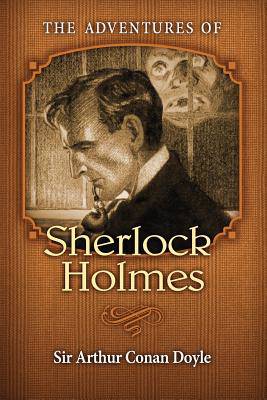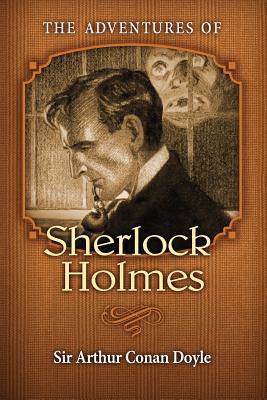
- Afhalen na 1 uur in een winkel met voorraad
- Gratis thuislevering in België vanaf € 30
- Ruim aanbod met 7 miljoen producten
- Afhalen na 1 uur in een winkel met voorraad
- Gratis thuislevering in België vanaf € 30
- Ruim aanbod met 7 miljoen producten
Zoeken
Omschrijving
New 6x9 inch paperback edition. "The Adventures of Sherlock Holmes" is a collection of Sir Arthur Conan Doyle's first twelve short stories featuring the world's most famous detective, which were originally published as a series of single stories in The Strand Magazine from July 1891 to June 1892, before being published as a book in 1892. This edition includes cover and frontispiece illustrations by Frederic Door Steele (no other illustrations). A London-based "consulting detective" whose abilities border on the fantastic, Sherlock Holmes is famous for his astute logical reasoning, his ability to adopt almost any disguise, and his use of forensic science skills to solve difficult cases. Holmes's primary intellectual detection method is abductive reasoning, and readers enjoy analyzing just what Holmes is doing when he performs his "deductions," which consist primarily of drawing inferences based on straightforward practical principles and careful observation, resulting in an analysis of physical evidence that is both scientific and precise. Sherlock Holmes remains a great inspiration for forensic science in literature, especially for the way his acute study of a crime scene yields small clues as to the precise sequence of events.
Specificaties
Betrokkenen
- Auteur(s):
- Illustrator(s):
- Uitgeverij:
Inhoud
- Aantal bladzijden:
- 262
- Taal:
- Engels
Eigenschappen
- Productcode (EAN):
- 9780615850610
- Verschijningsdatum:
- 14/07/2013
- Uitvoering:
- Paperback
- Formaat:
- Trade paperback (VS)
- Afmetingen:
- 152 mm x 229 mm
- Gewicht:
- 390 g

Alleen bij Standaard Boekhandel
+ 38 punten op je klantenkaart van Standaard Boekhandel
Beoordelingen
We publiceren alleen reviews die voldoen aan de voorwaarden voor reviews. Bekijk onze voorwaarden voor reviews.











